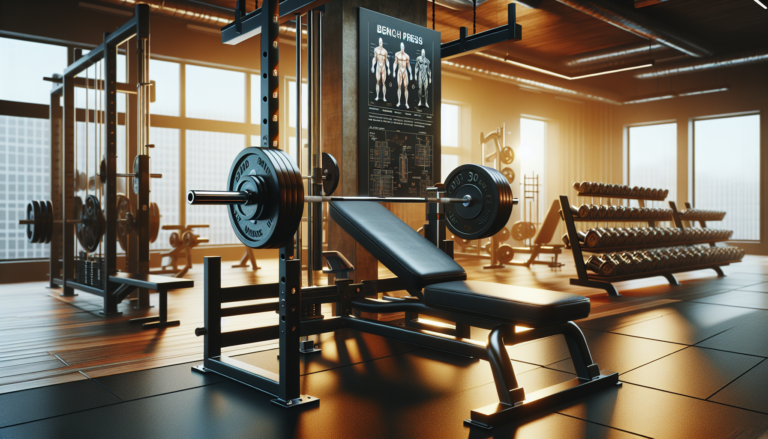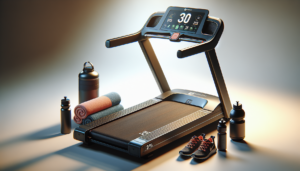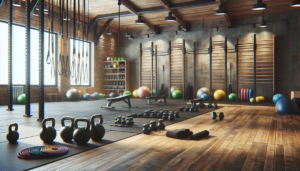Introduction to Bench Press Workouts
The bench press is one of the most popular and effective exercises for building upper body strength and muscle mass. It is a compound exercise that targets multiple muscle groups, including the chest, shoulders, and triceps. Whether you are a beginner or an experienced lifter, incorporating bench press workouts into your fitness routine can help you achieve your goals and improve your overall physical performance.
What is a Bench Press?
The bench press is a weightlifting exercise that involves lying on a bench and pressing a barbell or dumbbells upward from chest level. It can be performed using various techniques and equipment, such as a flat bench, incline bench, or decline bench. The primary muscles engaged during a bench press are the pectoralis major (chest), anterior deltoid (front shoulder), and triceps brachii (back of the upper arm).
Muscles Targeted by Bench Press
| Muscle | Function |
|---|---|
| Pectoralis Major | The primary muscle targeted during bench press, responsible for pushing movements |
| Anterior Deltoid | Assists in shoulder flexion and stabilization during bench press |
| Triceps Brachii | Extends the elbow joint and helps in pushing the weight upward |
In addition to these main muscles, the bench press also engages the biceps brachii and serratus anterior to a lesser extent, contributing to overall upper body strength and stability.
Benefits of Bench Press Workouts
Incorporating bench press workouts into your fitness routine offers numerous benefits for your upper body strength, muscular endurance, and overall health.
Increased Upper Body Strength
One of the primary benefits of bench press workouts is the development of upper body strength. By consistently challenging your muscles with resistance, you can increase the strength of your chest, shoulders, and triceps. This improved strength translates to better performance in other upper body exercises and daily activities that require pushing or lifting.
Improved Muscular Endurance
In addition to building strength, bench press workouts can also enhance your muscular endurance. By performing multiple repetitions with moderate weights, you train your muscles to sustain repeated contractions over an extended period. This improved endurance is valuable for activities that require sustained upper body effort, such as pushups or certain sports.
Enhanced Bone Density
Weight training exercises like the bench press can also have a positive impact on bone density. By placing stress on your bones through resistance, you stimulate the production of new bone cells, leading to stronger and denser bones. This is especially important for older adults, as it can help prevent age-related bone loss and reduce the risk of osteoporosis.
Techniques for Effective Bench Press
To maximize the benefits of bench press workouts and ensure proper form, it’s essential to understand the various techniques and variations involved.
Proper Form and Posture
Maintaining proper form and posture during bench press is crucial for targeting the intended muscles and preventing injury. Here are some key points to keep in mind:
- Lie flat on the bench with your feet planted firmly on the ground
- Grasp the barbell with a slightly wider than shoulder-width grip
- Lower the barbell to your chest while keeping your elbows at a 45-degree angle to your body
- Push the barbell back up to the starting position, extending your arms fully
- Keep your core engaged and your back flat against the bench throughout the movement
Variations of Bench Press
There are several variations of the bench press that target the muscles from different angles and emphasize specific areas of the chest and shoulders:
- Traditional Bench Press: Performed on a flat bench, targeting the overall chest, shoulders, and triceps
- Incline Bench Press: Performed on an inclined bench, emphasizing the upper chest and anterior deltoids
- Decline Bench Press: Performed on a declined bench, focusing on the lower chest muscles
- Narrow Grip Bench Press: Performed with a closer grip, placing more emphasis on the triceps and forearms
Choosing the Right Weight
Selecting the appropriate weight for your bench press workouts depends on your fitness level, goals, and experience. As a beginner, it’s essential to start with lighter weights and focus on proper form before gradually increasing the load. Aim for a weight that challenges you but allows you to maintain control throughout the entire range of motion.
Tips for Maximizing Bench Press Workouts
To get the most out of your bench press workouts and ensure safe and effective progress, consider these tips and best practices.
Frequency and Repetitions
The optimal frequency and repetitions for bench press workouts vary depending on your goals and training experience:
- For strength gains: Perform bench press 2-3 times per week, with 3-5 sets of 3-6 repetitions using heavy weights
- For muscle hypertrophy: Perform bench press 2-3 times per week, with 3-4 sets of 8-12 repetitions using moderate weights
- For muscular endurance: Perform bench press 2-3 times per week, with 2-3 sets of 15-20 repetitions using lighter weights
Remember to allow adequate rest and recovery between bench press sessions to prevent overtraining and promote muscle growth and repair.
Using Spotters and Safety Measures
When performing bench press, especially with heavy weights, it’s crucial to prioritize safety. Always use a spotter when attempting maximal lifts or pushing your limits. A spotter can assist you in completing the final repetitions and ensure that the barbell is safely racked if you reach muscle failure.
Additionally, familiarize yourself with the proper use of safety bars or pins in a power rack. These safety measures can catch the barbell if you lose control, preventing potential injuries.
Progressive Overload Principle
To continually challenge your muscles and stimulate growth, apply the principle of progressive overload to your bench press workouts. This involves gradually increasing the weight, repetitions, or sets over time as your strength improves. By consistently challenging your muscles with increased demands, you promote ongoing adaptations and progress towards your strength and muscle-building goals.
Conclusion
Bench press workouts are a fundamental component of any well-rounded upper body strength training routine. By targeting the chest, shoulders, and triceps, the bench press offers numerous benefits, including increased strength, improved muscular endurance, and enhanced bone density. By mastering proper techniques, incorporating variations, and following effective training principles, you can maximize the results of your bench press workouts and achieve your fitness goals. Remember to prioritize safety, use appropriate weights, and allow sufficient rest and recovery to optimize your progress and prevent injury. With dedication and consistency, the bench press can be a powerful tool in your journey towards a stronger, more muscular upper body.






